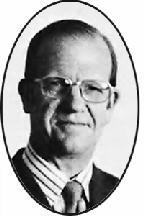What I’m reading Right Now: In Defense of Elitism by William A Henry
III
(Anchor Books, 1994)
Why I’m reading it:
An essayist writing in The New Criterion mentioned the book. Long ago I
decided that I am not an egalitarian; some people are just better at things
than others. I have also long believed that Western culture is superior, not
just because it is the culture I belong to, but because of its massive output
of science, art, literature and music as well as political liberty. Henry argues for the benefits of recognizing and fostering excellence, rather
than celebrating mediocrity.
He does not explicitly
define egalitarianism, but I think this suffices well: (p. 12) "we have
foolishly embraced the unexamined notions that everyone is pretty much
alike (and worse, should be), that the common man is always right, that
he needs no interpreters or intermediaries to guide his thinking, that a
good and just society should be far more concerned with succoring its
losers than with honoring and encouraging its winners to achieve more an
thereby benefit everyone."
What I think of it:
It is not quite what I expected – Henry is an unabashed liberal.
However he is an honest one, and I think that if we had gotten the chance to meet, (he reposed in 1994. May he rest in peace.) we
could have gotten on very well, first of all by being honest and forthright about our
starting assumptions. The first chapter alone contains several swipes at the
idea of religion. He hasn’t singled out Christianity, instead he criticizes general
religiousness. At the same time, he pulls no punches in his criticism of political
correctness, or ‘special pleading’; of revisionist history, and the growing
blight of entitlement without regard to actual performance or contribution.
Will I finish it?
Yes. His writing style makes for quick reading. Although the subject
matter and his examples from the (then-current) headlines may leave one heavy-hearted,
his style is more newspaper than ponderous scholarship.
Would I recommend it?
Yes. It is refreshing and encouraging to hear someone who is not on the
political Right (where I am) argue against the dangerous path that post-modern
liberalism has set itself upon. Henry’s criticisms are just as timely in 2016.
Gimme a quote:
The whole book so far is quotable, but copyright forbids. Here are a
few, italics for emphasis mine.
(p. 25) – Henry is discussing the supposed egalitarianism of ‘60s
campus radicals: “Indeed the dirty little secret of sixties radicalism - I
know, I was there - was that many of its most aggressive proponents were those
who felt the deepest elitist yearnings. Their avarice was transmuted into leftist
rage by the fear that they might not prevail, that in a fiercely meritocratic
contest they might not qualify for the house with the white picket fence and
the Beamer in the three-car garage. To them, society was unjust if it would not give them what they wanted.
Their very definition of fairness, while shouted to the skies in egalitarian
terms, was the result of thwarted or imperiled elitist ambition.”
(p. 54) Here, he quotes Arthur Schlesinger Jr.: “Let us by all means
teach black history, African history, women’s history, Hispanic history, Asian
history. But let us teach them as history,
not as filiopietistic commemoration.
The purpose of history is to promote not group self-esteem, but understanding
of the world and the past, dispassionate analysis, judgement and perspective,
respect for divergent cultures and traditions, and unflinching protection for
those unifying ideas of tolerance, democracy, and human rights that make free
historical inquiry possible.”

